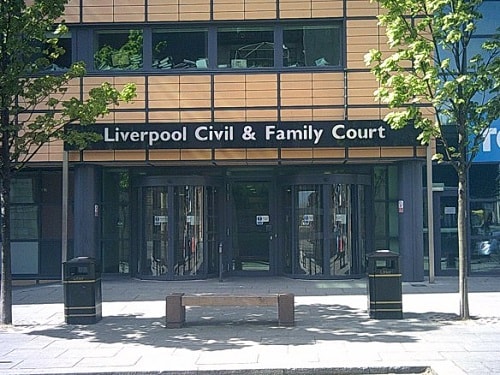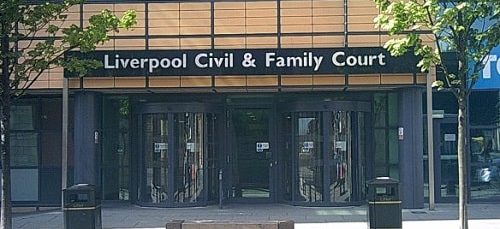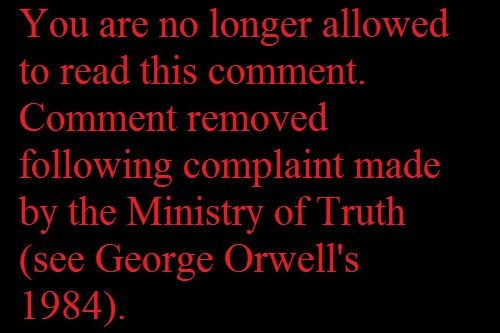What do disasters, Wirral Council, Wirral Waters, an MOT test, Snowden and America have in common?

I thought it was time I wrote a piece to explain to readers why there haven’t been as many blog posts this month (bear in mind there were only six last month).
After all a lot has been going on. So where do I start?
Firstly, a bit of internal news. As people know I record a lot of video of public meetings and thanks to the slow internet speeds here on the Wirral (there’s not enough competition on high-speed internet yet unfortunately) a lot of strain had been put on the main hard drive of my laptop. Just as a quick bit of commentary, Wirral Council did at one stage have money set aside for high-speed internet access on the Wirral, but decided to spend it on something else apart from a small amount still earmarked for high-speed internet access to the Wirral Waters area.
Although I’m close enough to Wirral Waters to probably benefit, sadly there is a lack of competition on the high-speed internet front meaning prices are still high.
Those who know me, know I used to fix computers and have a disaster recovery plan in place for this scenario and backups. Thankfully IT disaster recovery (yes I realise it is rare for management for have an IT background) runs smoother here than it has in the past at Wirral Council which has had its fair share of IT fiascos.
However to cut a long story short, the internal hard drive can no longer be used (it’s too unreliable and error prone) and has being replaced by an external 1 terabyte hard drive connected via USB.
Yes, it would be nice to have replaced the faulty internal hard drive, but due to the age of the laptop I’m concerned that opening it up to do so could finish the laptop off completely. This means effectively the laptop is no longer portable and stays in my office (which is basically a spare bedroom).
However my routine had been to write blog posts elsewhere in the morning. That’s tricky now as the external hard drive and USB cable need to be somewhere flat. I will eventually replace the laptop. Public meetings held in the morning (such as the Wirral Council Cabinet meetings held on Monday morning’s) also break up this routine.
Last week, my wife’s car went it for its MOT (bear in mind a lot of the public meetings are held at times when public transport is just not possible). As we both use the car for work purposes, I cover the cost of this as a business overhead. Ultimately though when the car is unavailable, considering the criticism I’ve levelled at politicians for getting taxis (at the taxpayer’s expense) to public meetings, I didn’t want to rely on taxis and decided not to go the Licensing, Health and Safety and General Purposes Committee meeting last week (also in part because of my birthday later on in that week). In a slight twist of fate that meeting I missed was about taxis.
The cost of the MOT plus repairs, VAT etc came to about £740. As that’s a one-off expense, I have had to concentrate on commercial work (basically an advertising deal to cover the overhead).
Another factor to consider is that my original plan for this blog had been long-term to run Google Adsense ads on it. At one stage with another website I was running I was earning about £60 a day over the Christmas period from such advertising. These days however the other side of the dot com bubble, advertising rates are much, much lower.
You may have noticed this blog has minimal advertising on it. Those who keep abreast of information law, will know that the Max Schrems legal case (following Snowden’s whistleblowing revelations) led to the EU US Safe Harbour agreement being ruled as legally invalid. Although it was later replaced by the EU US Privacy Shield, it’s only recently that Google have gone through the process necessary that data can be shared with them (such as running their ads on this blog).
There is also a long running story I’ve been writing about for years that for legal reasons, I can’t write about due to legal restrictions until an outstanding matter in it is decided.
Having had a birthday (indeed this blog is now around 6 years old) and a fortnight to think about the future of this blog, feedback (including emails I get) have told me that people find the videos of public meetings useful and the publication of documents revealed during citizen audits.
There are literally boxes of information I have from the 2015-16 audits of various local public bodies (including a lot of unpublished files on councillors’ expenses), but Wirral Council still owes me a number of contracts and other documentation (an employee went on leave which seems to be the usual standard reason why in an organisation of thousands of employees work grinds to a halt when somebody goes on leave).
So, the upshot is that I’ve not vanished off the face of the earth, or got another job and just because there may be a lack of published blog posts doesn’t mean there aren’t blog posts written and yet to be published (for example I wrote one on my birthday last week about Monday evening’s set of three Wirral Council meetings that is awaiting the final touches (photo, headline etc)).
My aim is to concentrate on topical, but in-depth investigative journalism, but bearing in mind there is just myself and Leonora here, to do a good job on such matters can take years of patient reporting.
This would be made easier if certain people in the public sector locally didn’t act in the title of a book a reader kindly sent me a while back titled “Not in the Public Interest”. My job is made considerably more difficult to do and time-consuming by certain people on salaries that look more like phone numbers in politically restricted posts, who seem to get it into their head that I’m on some personal crusade to actually get them to do their job properly.
Therefore they see me as a threat and their raison d’être becomes making life difficult for me.
I’ve seen many public sector managers come and go, it’s not personal, I’m not out to get you or cause chaos.
Yet have a bit of sense and don’t deliberately go out of your way to abuse your power in ways that are unethical.
I never like having to go down the route of getting the judiciary involved, not just because it polarises matters but as it always leads to a can of worms coming out (that there are no restrictions on reporting on in the interests of open justice). As a court reporter I know how the public sector always treats judicial processes like a game, lies through its teeth, lies under oath and has for a long time abused the court and tribunal processes to get what it wants knowing there aren’t going to be consequences for doing so.
My immediate family (before retiring) worked in the criminal justice system and as a child I was told about the systems of justice in this country. I realise it may be old-fashioned to expect the public sector to adhere to the rule of law and even odder to expect councillors and local government officers to explain why they did what they did to the judiciary.
I also realise that coming from a foreign background and being married to a foreign national that my views on openness and transparency are somewhat different to what seems to be accepted as a cultural norm here (yes I was born in this country but sometimes it seems to be completely different to the one I grew up in)!
However, I would be keen to hear your views (in the form of comments) on what level of advertising you’d find acceptable (or whether you think a different way of funding running costs is better) and whether you think long form more in depth journalism is what you want to read (along with data journalism such as the publication of documents) along with any other thoughts you may have.
If you click on any of the buttons below, you’ll be doing me a favour by sharing this article with other people.



